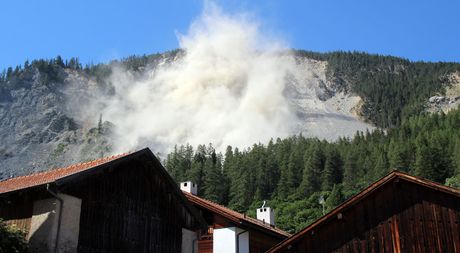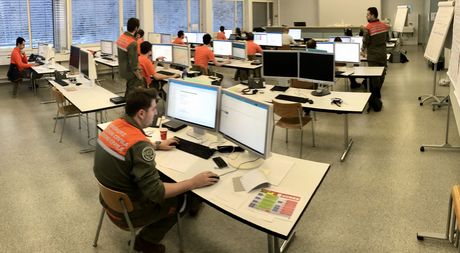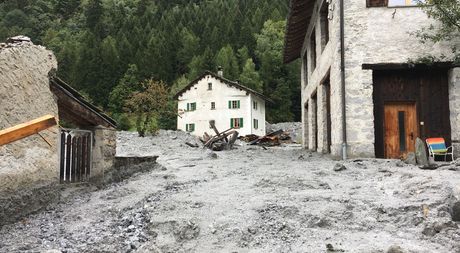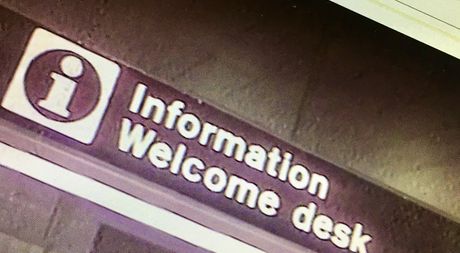Crisis Management
A crisis can hit anyone – at any time
Any organisation can find itself in a situation that may do considerable damage to its reputation or even threaten its existence. Quick, and often far-reaching decisions are called for. Such decisions, taken without proper preparation for a crisis, can do great harm - harm that could have been avoided had the organisation prepared for potential critical situations. Proactive communication is an essential element of any form of crisis prevention and resolution.
Those who fail to communicate judiciously in a crises risk losing the confidence of their stakeholders abruptly, and sometimes irreversibly. A professional and proactive crisis communication plays a vital role in preventing and managing crises, and it helps to minimise reputation damages.
Communication is not a one-way street and media work is only part of the job: this motto holds true, and particularly so during times of crises.
Building confidence – during a crisis
Together we will create an environment set out to prevent communication crises in your organisation. As part of your crisis management plan, we will pinpoint potential scenarios and decide on procedures and responsibilities. In the event of a crisis, we will be at your side and help make sure that all concerned parties, be it directly or indirectly, and the stakeholders of your organisation, as well as the public, are informed professionally.
A crisis response can only successfully cope with a crisis if it never loses sight of those that are hit hardest by the situation. That is the reason why media work is just one element of the communication: direct contact with those concerned not only builds trust but also provides valuable feedback to the crisis response team.
A well-mastered crisis can limit the damage to your organisation and even strengthen the confidence everyone has in your organisation.
A note on crisis communication
Whether it was an accident, financial difficulties, or misconduct that caused the crisis: communicating proactively has become the decisive factor to master the crisis successfully.
Crisis communication aims to proactively inform those concerned by the crisis, the stakeholders and the public, and all the while making sure that relevant feedback on their ongoing work gets back to the crisis response group. Thus, it contributes to preventing avoidable damage to the organisation and all those affected by the crisis.
Booming social and online editorial media have massively raised expectations towards the level of communications provided during a crisis. For that intend to keep the content lead in the crisis and remain the primary source of information communicating proactively and transparently is a must.
Mandates Crisis Management and Communication
Keep them well informed and listen to them carefully
Risk Dialog for Natural Disaster

The mountain village of Brienz/Brinzauls in the Swiss municipality of Albula/Alvra slides downhill at a rate of one metre per year and is threatened by a rockfall or landslide. The municipality prepared itself and the affected residents for all scenarios, including the village evacuation.
Christian Gartmann is a member of the municipal crisi management board and advises the decision-making bodies on communication behind and in front of the scenes. As part of a risk dialogue, the population is continuously informed about the situation and possible scenarios. Their questions and concerns are incorporated into the work of municipal crisis management. A detailed information bulletin is published monthly, and an information event is organised three to four times a year; in times of the pandemic, this is streamed live on the internet.
Nominated for the International German PR-Award

The municipality of Albula/Alvra and Christian Gartmann Ltd have been nominated for the International German PR Award 2024. The jury recognised the risk dialogue and crisis communication for the village of Brienz/Brinzauls and its evacuation in the summer of 2023.
Christian Gartmann is responsible for the municipal management team's risk dialogue and crisis communication. Since 2019, he has been designing and implementing a risk dialogue on the natural hazards of the significant landslide in Brienz and the comprehensive measures taken by the municipality and the canton of Graubünden. Those affected are at the centre of this: they always have the opportunity to talk to the municipal management team and its experts. When the village had to be evacuated in the summer of 2023, dialogue-based crisis communication began, as media from four continents reported on the fate of Brienz/Brinzauls.
Taskforce «Corona Engadin»

On Christian Gartmann's initiative, a regional task force was created to bring together the stakeholders of the local tourism industry. Its goal was to better prepare the players in the tourism industry for the "Covid winter 2020/21" and to promote uniform prevention and control measures for the pandemic across the entire region. Representatives of the regional hospitals and medical services soon joined the task force; the task force also established a coordination group with all the administrations of the municipalities in the Upper and Lower Engadine.
Christian Gartmann spearheaded the task force and liaised with the 13 municipalities. Notably, he developed a set of scenarios and training manuals for the region's service providers to help them prepare their businesses and staff for the tourist season and to facilitate communication with their guests.
Covid-19 pandemic: Crisis management and crisis communication

The coronavirus pandemic was the biggest crisis to hit Europe since the Second World War. Companies, organisations and government agencies had to activate crisis organisations in record time to deal with their aspects of the crisis.
Christian Gartmann advised numerous crisis organisations on their crisis management and crisis communication. He headed the media department for the Graubünden cantonal command staff during the first acute phase in March 2020.
He advised a ministry and numerous municipalities, companies, and organisations, from tourism and sport to political decision-makers, on tactical and operational aspects of their crisis management and media relations.
Crash of a historic airliner in Switzerland

Seventeen passengers and three crew members died in the crash of a historic JU-52 of the Swiss JU-AIR in the Grisons Alps on 4 August 2018.
Since the accident, Christian Gartmann has been supporting JU-AIR in crisis management and crisis communication. His efforts centre on providing comprehensive and transparent information to the public and communicating with the relatives of those involved in the accident. Christian Gartmann advises the company management on communication with the media and those affected, for example, when organising memorial events. He also acts as the airline's media spokesman and actively supports media representatives in their editorial work.
"InfoBondo" crisis communication awarded

The municipality of Bregaglia's crisis communication following the landslide and mudslides in 2017 was honoured with the Swiss Prize for Corporate Communications. The expert jury praised the ongoing dialogue and comprehensive media work with those affected.
InfoBondo was "the return of dialogue amid the crisis", said jury president Prof. Peter Stücheli-Herlach in his laudatory speech. It was not a rigid plan that led to success, but the agile cooperation of everyone. "When people communicate responsibly, they can overcome the most difficult situations." The "Swiss Award Corporate Communications" is the only Swiss prize for corporate communications.
Landslide near Bondo (Switzerland)

Eight people vanished in a massive landslide in Val Bondasca in Bregaglia in the summer of 2017. Shortly afterwards, debris flows broke loose and reached the area around the village of Bondo. Almost 150 people were evacuated, and more than 30 buildings were destroyed. The media interest was enormous.
As a member of the municipal management team, Christian Gartmann was responsible for communication with those affected, the local population, and the national public. Regular information events and active media work ensured information and dialogue with the population. He advised and supported the command staff in their communications work and ensured comprehensive issue management.
Crisis management for major sports event

Nearly 20,000 participants, helpers, spectators, and companions travel through the Engadin during the week of the Engadin Skimarathon. Christian Gartmann is a member of the organiser's crisis team, supporting it in crisis management and communication.
With Christian Gartmann's support, a crisis plan and a crisis communication concept have been developed. In incidents and accidents, the focus is on quickly informing those affected, relatives, and the public. The aim is to support victims, relatives, and members of the organisation in the crisis situation and to protect their privacy.
Crash of a small airplane near St. Moritz

A single-engine aircraft belonging to the Engadin Flying Club crashed during a mountain sightseeing flight. Two passengers and the pilot were killed, and one passenger survived.
Christian Gartmann was responsible for the motorised flight group's public relations work, informing the public transparently about the background of the flight and protecting the bereaved families of the pilot and passengers from speculation in the media.
Crisis communications for regional airport

Engadine Airport in Samedan near St. Moritz (ICAO code: LSZS) has mandated Christian Gartmann as a consultant and spokesperson in crisis situations. His role includes informing affected parties, stakeholders, and the public about crisis scenarios of all kinds.
Traditional company struggling to survive

More than 100 years after its founding, the Swiss media marketing company Publicitas experienced an existential crisis and underwent a far-reaching reorganisation.
As a member of the Executive Board, Christian Gartmann was responsible for internal and external communications. He succeeded in keeping the company out of the headlines. The workforce in 23 countries and stakeholders were transparently informed about the current situation, and the direction of the reorganisation was communicated.
Editorial work in crisis situations

During his years as a reporter and editor at the Zurich-based private broadcaster «Radio Z», Christian Gartmann learned about numerous companies in crisis.
As an aviation journalist, he reported on aircraft and helicopter accidents involving Alitalia, Crossair, private companies, REGA and Swissair. He covered these tragedies from the day of the accident to the conclusion of the accident investigations and thus learnt first-hand about the unique needs of the media in such exceptional situations.
